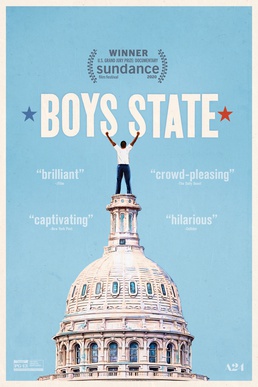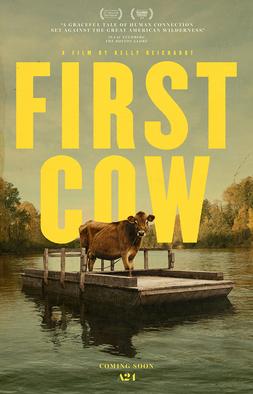Netflix took care of me during the early months of the pandemic and now I have been subtly shifting towards HBO as they step up their offerings. This week, I watched two of their new documentaries and they were both an engaging and wild ride. So settle in.
Showbiz Kids: Written and directed by Alex Winter (who I was shocked to discover is the same Alex Winter from the Bill & Ted movies - more on those in the near future!), this is a great behind-the-scenes look at what it means to be a child star. Featuring some incredibly well-known faces and candid interviews, this documentary sets out to explore what led these kids into show business in the first place, and the price they paid as they grew up.The movie starts out by interviewing Diana Serra Cary, who was the famous child star, Baby Peggy, in the 1920s. Between 1921-23, she made over 150 short films and was earning a $1.5 million annual salary by 1924, at the ripe old age of 6. However, thanks to her parents' wasteful spending, the stock market crash in 1929, and general financial mismanagement, she ended up poor in the 1930s and struggled a great deal. A story that is not uncommon among the other child stars interviewed for this film.
We get to hear from Evan Rachel Wood, Henry Thomas (aka the kid from E.T.!), Mara Wilson, Todd Bridges, Milla Jovovich, Wil Wheaton, and Cameron Boyce, a "Disney kid" who seemed to have gone through the ordeal of child stardom more unscathed than everyone else. The stories won't shock you (too much), and the common theme is around missing out on childhood. While other kids were playing with their friends and having regular experiences at school, these actors were on set, surrounded by adults, working at something that they may or may not have enjoyed, but not realizing what they were missing out on until it was too late. Some had family pressure to keep acting, while others thought they were doing it for themselves. There's a lot of trauma around loneliness, feeling misunderstood, and of course, the awful predatory nature of Hollywood that led many to experience childhood sexual abuse and turn to drugs.
Showbiz Kids isn't a feel-good documentary at all, but it's a vital look at how we treat those precocious "child stars" when they're off camera. I have admired the work of many of the people interviewed in this documentary, but hearing about their childhood experiences, I wonder if it was worth it. There are also some stories focused on current actors who are trying to make it big in Hollywood and Broadway, and while one has the hope that in the #MeToo era, both children and parents are a lot more clued in, it still seems like a gruelling process. There certainly is a good way to do it, but the consensus appears to be that ideally, you shouldn't do it for too long. Hollywood is too toxic and all good things come to a sudden and abrupt end.
Class Action Park: I haven't laughed so hard as I have while watching this movie. It is so utterly ridiculous and incredible that I found myself giggling non-stop as the former employees and patrons of Action Park kept describing various rides at this amusement park that operated in New Jersey from 1978-96 and had to shut down when the volume of personal injury lawsuits got too high. The movie's central tenet is that timing was everything - this park reached its peak in the 80s when America was all about deregulation, greed, and doing whatever you wanted. And Action Park was the living embodiment of that spirit.Founded by disgraced trader (of course), Gene Mulvihill, the park featured three sections: the Alpine Center, Motorworld, and Waterworld, the latter of which was one of the first water parks in America. All three sections featured rides that were often conceived by Gene, involved shoddy construction with absolutely no feedback from an actual engineer, and trial runs by the park's teenage employees, many of whom would suffer unconsciousness or bloody injuries during these test runs. The documentary features interviews with former employees, as well as comedian Chris Gethard, who went to Action Park frequently as a child, and my God, hearing these people describe these rides and how insane they were, induces both hysteria and horror. And the staff were all teenagers, leading to a general sense of abject lawlessness about the place. Every day consisted of accidents, fights, and general chaos, and yet somehow, this place only got shut down in 1996. At one point, they even had to arrange to have their own ambulances, because they were taking away resources from the New Jersey residents around them. It's a wondrous story.
Halfway through, the movie does take a turn as it focuses on the story of a boy who died at Action Park. At least six people are known to have died after accidents on the park's rides, and who knows about the number of lasting injuries? The state of New Jersey had no regulations mandating that Gene accurately report injuries resulting from his crazy rides, so all we have to go on are the stories from the people interviewed in this film to guess at the devastation wreaked during the years of operation. In fact, I first heard of "Traction" Park from my colleague, Anthony, who used to visit as a kid and either broke something or got very banged up on one of the rides. It's a badge of honor connecting all park attendees - if you had no scrapes or bruises, you must have been doing something wrong. To paraphrase one of the interviewees, part of the thrill of going to Action Park was that it was a 50/50 shot that you would either have the greatest time of your life, or come out in a body bag.
Directed by Chris Charles Scott and Seth Porges, Class Action Park is a scintillating documentary about a truly bonkers subject. I only finished watching it yesterday but I'm already planning on re-watching it because I still can't believe some of the things I saw. One hopes that you couldn't get away with such a place in 2020, but given how crazy life currently feels, it's nice to know that we've dealt with plenty of craziness in the past too. One particularly revealing factoid? Donald Trump had the chance to invest in this park in the 80s, and he didn't because HE thought it was too nuts. So strap on your seatbelts and get ready to watch this documentary - it's gonna be a bumpy ride.







